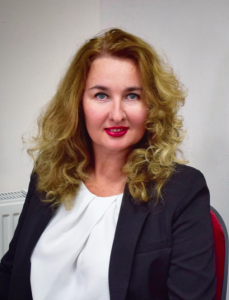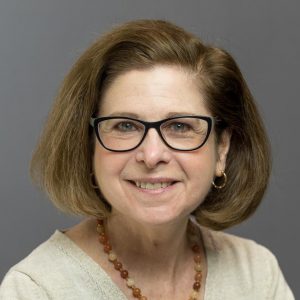Dr. Piet Kommers

Short bio :
Piet Kommers, Pioneer in media education and leader of NATO Advanced Research Workshops on Cognitive Learning Tools. UNESCO professor and scientific leader with extensive experience in educational technology and social media. ” …. Media proved to be instrumental to emancipation, equity and societal evolution: the smart phone, virtual reality, interactive video, hypermedia, expert systems, modelling and simulations.” He is Ph.D. holder in Educational- and Media Design, with a Master in Pedagogy and a Bachelor degree in Teacher Education. Received the prestigious academic award for innovative ‘Experimental Design’ and was offered a research position in collaborative group problem solving wherein he designed the ‘Concise Urban Planning Task’. Long-term experience at management level coupled with a strategic appreciation and vision. Methodical in evaluation and systematic implementation. A strong work ethic with a high level of personal integrity (leading by example); able to create trust in teams.
Talk title :
Learning Technology for the Evolution of Education
Abstract :
In order to predict the next decades evolution in education, it might be good to learn from history in a nutshell. Looking back from the old Indian, Chinese and Greek scholar traditions, we may say that learning was always seen as primarily the dialogue between wise experts and novices. Be aware that dialogue implies much more than the transfer of knowledge; it is a mutual process where the teacher needs the interaction with students as otherwise the teacher misses the incentives to reformulate and tune to the individual learner constantly. The book printing was a game changer: It relies upon the believe that expertise can be consolidated, transported and consumed by the learner. Plato explicitly refrained from handing over his text to the reader; Even if the topic looked rather straightforward, he would prefer a dialogue to be sure that both persons in the conversation understood each other. Up to nowadays, the written word is seen as the ultimate modality to feed learning. The most recent turnpike in revaluing the conversational format for learning has been made by Lev Vygotsky as he saw learning essentially as a social process in which the transition from conceptual imagination to formulation in language was the basis for learning. Where are we now? As we see the long list of paper titles in this conference, it is the fascination for the wide mix of the learning/teaching spectrum: World-wide Massive Open Online Courses (MOOCs), Learning Analytics (using A.I. for diagnosing learning characteristics), Equity (providing fair learning opportunities to students from all socio-economic strata), 21st century new citizen skills, etc. etc. In each of them ICT plays a crucial role. Even we may ask ourselves if ICT is regarded as 1. goal in itself, 2. method for making learning more flexible and more efficient, or 3, ICT as cosmetic layer in order to suggest a ‘modern’ way of learning. After you think about these three alternatives, you will find out that in any real situation it is a mix of the three of them. Maybe most essential is that the role of ICT so far has been a catalytic one; It transforms traditional goals, content and values in new ones. What new values in learning do we face at the moment? Accept learning as diverse process: It is a pity to see that almost all educational innovations have tried to superimpose a new dominant view by disqualifying and supplanting prior conceptions of learning. A prominent example is the introduction of the instructional metaphor based upon the need to select and train more and more military candidates; Its method was to discern, sequence and test small steps in knowledge and skill, in order to be sure that the learning process could be regulated and controlled according to an analytic template. With the arrival of computer-based instruction this cybernetic approach reached its apotheosis. Antidote to this instructional paradigm, the constructivist approach evolved. Its attempt was to see in learning mainly its idiosyncratic nature; incidental prior knowledge and experiences make every student different. The recent interest is to use Social Media and Web-Based Communities to motivate students to invest in each other ‘collaborative learning’. How can this approach be reconciled with the ongoing university regimes where uniform test criteria are ruling? This is the question to be solved during this conference.
Dr. Helaine Marshall

Short bio :
Marshall Helaine is professor of education and director of language education programs at Long Island University, Hudson, NY, USA. She teaches courses in linguistics and multicultural education in face-to-face, blended, and synchronous online formats. Her research interests include: culturally responsive-sustaining education, nontraditional teaching of grammar, and instructional technology, especially flipped learning. She initiated and facilitated an iEARN Project, the International Film Club, for students from Virginia in the U.S. and Berkane, Morocco; there are now 10 nations participating. She has published articles in ELT Journal, TESOL Journal, and TESL-EJ, among others. Her most recent book, published with University of Michigan Press, is Meeting the Needs of SLIFE: A Guide for Educators, 2nd ed., co-authored with Andrea DeCapua and Frank L. Tang, both from New York University, NY, USA.
Talk title :
SOFLA: Synchronous Online Flipped Learning Approach
Abstract :
The current educational context provides an opportunity to combine two separate learning approaches that, in combination, can result in robust instruction uniquely designed for today’s emergency delivery of subject matter content and academic skills. These approaches are: the Community of Inquiry framework for online teaching (Garrison, Anderson, & Archer, 2000) and the Four Pillars of flipped learning (Bergmann & Sams, 2012). The resulting innovative framework is the Synchronous Online Flipped Learning Approach (SOFLA) (Marshall, 2017; Marshall & Kostka, 2020; Marshall & Rodriguez Buitrago, 2017), a distance learning model that most closely replicates actual classroom teaching. SOFLA consists of structured, interactive, multimodal activities in an eight-step learning cycle, including both asynchronous and synchronous components, that create fertile spaces for students now learning remotely. The presenter will discuss the model and provide examples for implementing it, along with conceptual guidelines and rationale for online flipped learning as a solution to the global need for maintaining viable, engaging, and effective learning options even as we confront unprecedented educational challenges.
Dr. Iryna-Sekret



